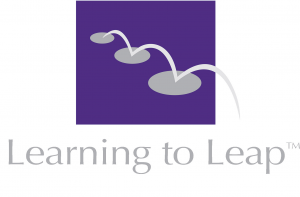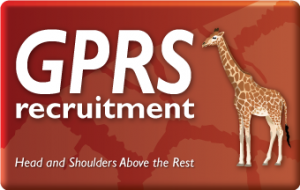Once your professional and compelling CV has worked its magic, and the recruiter has called you up, the next stage is the much anticipated and often dreaded interview process.
Preparing for, participating in and reflecting on the interview process raises a number of common questions and concerns. To address these much deliberated issues Giraffe CVs are proud to launch a three-part blog series: Smart tips for interview success.
PART 1: BEFORE THE INTERVIEW
This week’s blog, part one in the series, focuses on what you can do before the interview to position yourself for success. Giraffe CVs consulted with a number of recruitment and employability experts; asking them for inside advice and interview tips to help you proactively and properly prepare for your interview. I hope you enjoy their answers.
Are there any ways an interviewee can position themself in a positive way before the interview date?
 “If done carefully the subtle use of social media to interact with a company’s social media executive can help to position you in a positive light. The important thing here is that whichever social media platform you’re using, it must sing from the same hymn sheet as your CV.
“If done carefully the subtle use of social media to interact with a company’s social media executive can help to position you in a positive light. The important thing here is that whichever social media platform you’re using, it must sing from the same hymn sheet as your CV.
If it doesn’t keep your settings to private and step away from the keyboard as you will do more damage than good. However, if you have developed an online brand that shows you in a positive light, keep a look out for opportunities to add to a company’s conversation with useful insights or ideas, just be sure to remember that less is often more!”
Leo Woodhead, Careers Advisor. Contact via Twitter @thecareersblog
How can a candidate best prepare for an interview?
 “Prepare three or four stories from your experience to illustrate why you can do the job. Know them inside out and draw on different aspects depending on the questions asked. The key is being relevant, so check carefully against the job requirements. Practice, practice, practice (find a friend to help). Learn some relaxation techniques if nerves are a problem. Do your research on the employer – and that means more than repeating back what is on their website. Find an excuse to ring up the employer before the interview so they remember you.”
“Prepare three or four stories from your experience to illustrate why you can do the job. Know them inside out and draw on different aspects depending on the questions asked. The key is being relevant, so check carefully against the job requirements. Practice, practice, practice (find a friend to help). Learn some relaxation techniques if nerves are a problem. Do your research on the employer – and that means more than repeating back what is on their website. Find an excuse to ring up the employer before the interview so they remember you.”
David Shindler, Learning to Leap. Contact via Twitter @David_Shindler
____________________________________________________________________________________________
 “Once you have been accepted for an interview, you know that the interviewer knows your skill set and is aware of any “gaps” you may have. Now is the time to go the extra mile to stand out from the other candidates.
“Once you have been accepted for an interview, you know that the interviewer knows your skill set and is aware of any “gaps” you may have. Now is the time to go the extra mile to stand out from the other candidates.
Research the company, find out exactly what they do, how many offices they have etc. Basically, any information that you can use in an interview to demonstrate that you have taken an interest in and time to find out about your potential new employer.
Find out exactly where the interview is taking place and, depending on the location, it may be even worth trying out the route prior to the date. There is nothing worse than getting lost and arriving late and rushed to an interview.
Go back over your CV, especially if you have a couple of different versions depending on which type of vacancy you are applying for.”
Pamela Hopkinson, Jobs in Food Manufacturing. Contact via Twitter @JobsinFoodMfr
__________________________________________________________________________________
 “Do research. If you don’t, you may as well kiss goodbye to that job. You would be amazed at the number of people who do this. Be up to speed with the latest facts and figures about the business, but also about the industry and wider trends that affect the business. Be confident that if you were given a copy of the Financial Times, you could easily choose two or three articles that relate to the organisation/industry you are interviewing for and explain what impact it might have on the organisation.
“Do research. If you don’t, you may as well kiss goodbye to that job. You would be amazed at the number of people who do this. Be up to speed with the latest facts and figures about the business, but also about the industry and wider trends that affect the business. Be confident that if you were given a copy of the Financial Times, you could easily choose two or three articles that relate to the organisation/industry you are interviewing for and explain what impact it might have on the organisation.
Form your own opinions. This conveys a sense of self-awareness. Someone who can think on their own. Make sure the opinions you form aren’t too radical for the business you are interviewing with. Especially if it is a conservative business. But if it’s a creative job, then let your imagination fly.”
Answer from Charlie Reeve, Head of Graduate Recruitment and Development at Arriva via StudentVine’s Inside Track Series. Contact via Twitter @GradQuiz
________________________________________________________________________________
 “It is always a good start to find out about the company. Know what industry it is in.
“It is always a good start to find out about the company. Know what industry it is in.
Check out the latest media reports on the company, as this gives the impression that you are interested in the company.”
Sophia Husbands, GoGetterMe. Contact via Facebook or Twitter @GoGetterMe
How much should a candidate try to find out about their target employer?
 “It’s not enough anymore to simply regurgitate what you can remember of the employer’s website when the opportunity arises at interview. It’s boring to the interviewer (they’ve already heard it 10 times that day) and it shows little initiative or originality.
“It’s not enough anymore to simply regurgitate what you can remember of the employer’s website when the opportunity arises at interview. It’s boring to the interviewer (they’ve already heard it 10 times that day) and it shows little initiative or originality.
Whilst to some extent, the appropriate depth of research is dependent on the level of position (i.e. research for an interview for an entry-level or transactional role, e.g. a sales assistant will be much less intense than research for a senior management or leadership position) good core information includes understanding the organisation’s mission, vision, and values, as well as factual information, including age, size (both in staff numbers and annual turnover), locations, history, partnerships, and recent news.
Role-specific information is often the most neglected area of employer research, but it’s one of the easiest ways to demonstrate capability, interest and passion. An accountant, for example, should seek out financial information that is relative to their role. A marketer should seek out information on target markets and product range, as well as making themselves familiar with social channels. In general, a good ratio of ‘generic’ and ‘role-specific’ information is 75%: 25% respectively.”
Tim Burns, Managing Director, GPRS Recruitment. Contact via Twitter @gprsrecruitment
_______________________________________________________________________________________
 “An employer wants to know that you are interested in their company and industry. What are the employer’s strengths in their field or business area? What are they known for?
“An employer wants to know that you are interested in their company and industry. What are the employer’s strengths in their field or business area? What are they known for?
Sources include networking (online and face-to-face), online research (Google them), industry/professional forums and journals, newspapers especially business sections (printed or online), people you know who work there, have worked there or other people you know who have these connections. Speak to their customers or users and competitors.
What are their visible signs of success? What awards have they won recently? Visit their offices and look for plaques on the wall in reception, client or customer testimonies, share price and published performance indicators.”
David Shindler, Learning to Leap. Contact via Twitter @David_Shindler
How much should a candidate try to find out about their interviewer(s)?
 “It is always good to try and find out as much as you can about an interviewer as again there may be something that drops into the conversation that will help you stand out from the crowd. Professional Social Media sites, such as LinkedIn, are a good tool for this.”
“It is always good to try and find out as much as you can about an interviewer as again there may be something that drops into the conversation that will help you stand out from the crowd. Professional Social Media sites, such as LinkedIn, are a good tool for this.”
Pamela Hopkinson, Jobs in Food Manufacturing. Contact via Twitter @JobsinFoodMfr
__________________________________________________________________________________
 “Just as the interviewer looks at your profile, an interview is two-way street. It is a good idea to find out about the interviewer’s interviewing style, for example whether they prefer competency-based style interviews, or tend to adopt a less formal approach to find out how you would fit into their team. One method of finding out is by viewing their profile on LinkedIn.”
“Just as the interviewer looks at your profile, an interview is two-way street. It is a good idea to find out about the interviewer’s interviewing style, for example whether they prefer competency-based style interviews, or tend to adopt a less formal approach to find out how you would fit into their team. One method of finding out is by viewing their profile on LinkedIn.”
Sophia Husbands, GoGetterMe. Contact via Facebook or Twitter @GoGetterMe
Should a candidate try to pre-empt questions and prepare specific answers?
 “It is always good to anticipate the types of questions you may be asked and for some roles it’s easy to know what the interviewer is likely to be looking for. So definitely plan some general responses. However, do not become so focused on using your pre-prepared responses that you do not really listen to the question the interviewer is actually asking.”
“It is always good to anticipate the types of questions you may be asked and for some roles it’s easy to know what the interviewer is likely to be looking for. So definitely plan some general responses. However, do not become so focused on using your pre-prepared responses that you do not really listen to the question the interviewer is actually asking.”
Pamela Hopkinson, Jobs in Food Manufacturing. Contact via Twitter @JobsinFoodMfr
Is there such a thing as over-preparing for an interview?
 “Only if by doing so you become confused or overwhelmed with information. We all learn in different ways so find what works for you. Prepare so you peak at the right time. You will always face the unexpected and that means responding to unforeseen questions in the moment. Get used to thinking on your feet by seeking opportunities to be tested when unprepared. Employers want to know if you can handle uncertainty because that’s what happens in the workplace. Trust yourself and be yourself – you will know more than you think you do.”
“Only if by doing so you become confused or overwhelmed with information. We all learn in different ways so find what works for you. Prepare so you peak at the right time. You will always face the unexpected and that means responding to unforeseen questions in the moment. Get used to thinking on your feet by seeking opportunities to be tested when unprepared. Employers want to know if you can handle uncertainty because that’s what happens in the workplace. Trust yourself and be yourself – you will know more than you think you do.”
David Shindler, Learning to Leap. Contact via Twitter @David_Shindler
___________________________________________________________________________________
 “I do not believe that you can be too prepared for an interview. What I do think can be the case, is that the candidate is so keen to show their knowledge that it detracts from the interview. Candidates need to keep in mind that an interview should be seen more as a conversation and is as much about them learning about the company and the role as it is for the interviewer to get to know the candidate.”
“I do not believe that you can be too prepared for an interview. What I do think can be the case, is that the candidate is so keen to show their knowledge that it detracts from the interview. Candidates need to keep in mind that an interview should be seen more as a conversation and is as much about them learning about the company and the role as it is for the interviewer to get to know the candidate.”
Pamela Hopkinson, Jobs in Food Manufacturing. Contact via Twitter @JobsinFoodMfr
Our three-part blog series, smart tips for interview success, will continue next Tuesday with part two: at the interview.


Trackbacks/Pingbacks